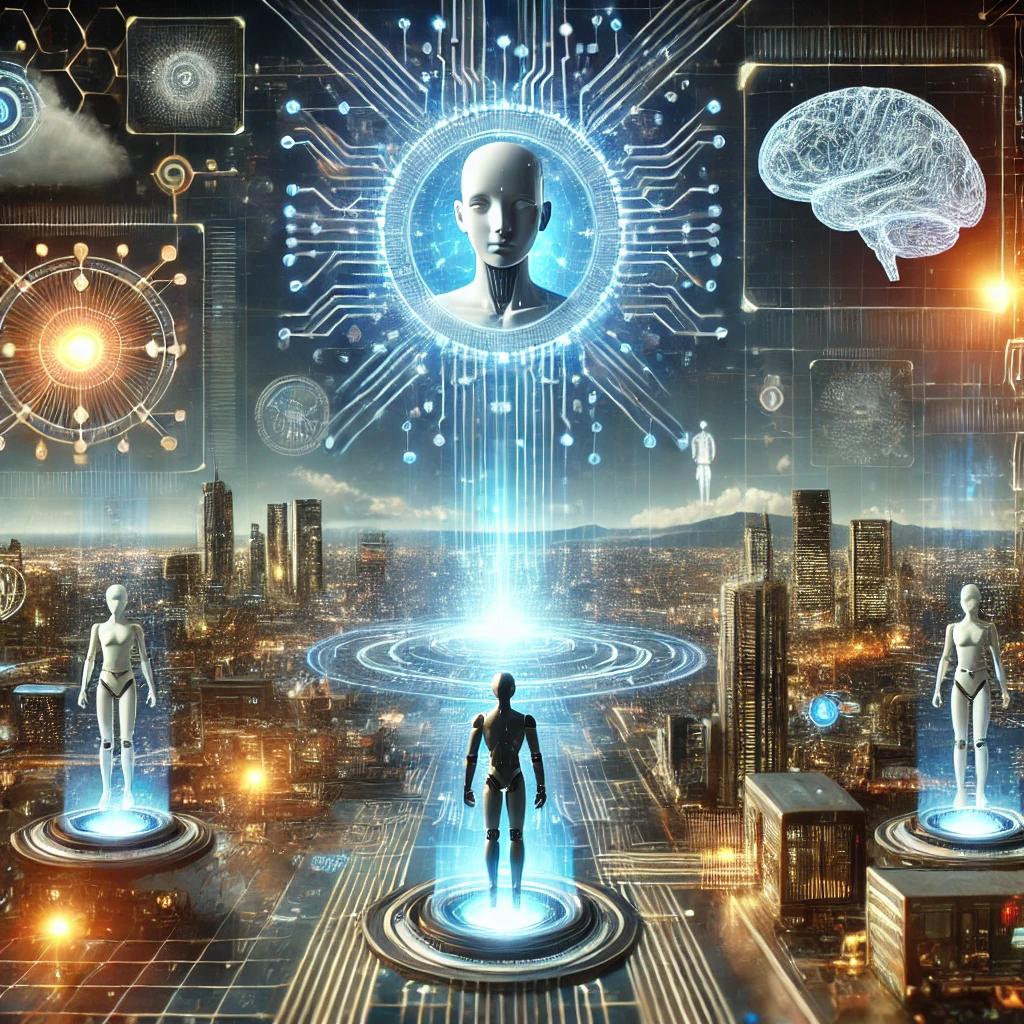
The AI Revolution Unfolding
Artificial Intelligence (AI) has transcended its early theoretical foundations to become a driving force in every aspect of human life. With breakthroughs in deep learning, natural language processing, and quantum computing, we are witnessing an AI-driven transformation that is reshaping industries, economies, and even societal structures. As we step into a new AI world, the question is no longer if AI will change our lives but how and to what extent.
The State of AI Today: Key Advancements
The AI landscape has evolved significantly over the past decade, with multiple cutting-edge developments fueling its growth:
1. Generative AI and Large Language Models
OpenAI’s GPT series, Google’s Gemini, and Anthropic’s Claude are revolutionizing content creation, automating coding, and enhancing human-computer interactions. These models are being deployed in businesses, education, and healthcare, increasing efficiency and productivity.
2. Computer Vision and Robotics
AI-driven computer vision is now enabling self-driving cars, medical imaging diagnostics, and facial recognition. Companies like Tesla, Boston Dynamics, and Nvidia are integrating AI into robotics, pushing the boundaries of automation in manufacturing, logistics, and personal assistance.
3. AI in Healthcare
AI is revolutionizing diagnostics, drug discovery, and personalized medicine. AI-driven models, such as DeepMind’s AlphaFold, have cracked the protein-folding problem, accelerating pharmaceutical research and development.
4. AI-Powered Finance and Trading
High-frequency trading (HFT) algorithms, fraud detection systems, and AI-driven risk assessments are optimizing financial markets, making transactions faster and more secure than ever.
5. Quantum AI: The Next Frontier
Quantum computing is poised to take AI to the next level by solving complex problems exponentially faster than classical computers. Google and IBM are leading this revolution with advancements in quantum algorithms and computing power.
The Future of AI: What Lies Ahead?
While AI has already made significant strides, its future promises even more groundbreaking developments. Here are some key areas where AI will redefine our world:
1. Artificial General Intelligence (AGI)
AGI, or AI with human-like reasoning and adaptability, remains the holy grail of AI research. Companies like OpenAI, DeepMind, and Meta are working toward creating AI systems that can learn and reason across multiple domains, akin to human intelligence.
2. AI and the Workforce: Automation vs. Augmentation
The fear of job displacement due to AI is real, but the future is likely to focus on augmentation rather than replacement. AI will handle repetitive tasks, allowing humans to focus on creativity, strategy, and interpersonal skills. New jobs centered around AI development, ethics, and oversight will emerge.
3. AI and Ethics: The Need for Responsible AI
As AI systems become more powerful, ethical considerations become paramount. Issues such as bias, misinformation, deepfakes, and privacy concerns require stringent regulations and ethical frameworks to ensure responsible AI development and deployment.
4. The Rise of AI-Driven Societies
Smart cities powered by AI will optimize traffic flow, energy usage, and public services. AI-driven governance models may help governments make data-backed decisions, improving efficiency in policymaking and crisis management.
5. AI in Space Exploration
AI is playing a crucial role in space missions, from autonomous navigation in Mars rovers to deep-space communications. AI-powered algorithms will be instrumental in analyzing vast amounts of data from space telescopes and discovering exoplanets.
Challenges and Risks of a New AI World
While AI promises immense benefits, it also comes with significant challenges:
- Job Displacement: AI could render certain roles obsolete, necessitating large-scale workforce reskilling.
- Bias and Fairness: AI systems must be trained on diverse datasets to avoid discrimination and bias.
- Security Threats: AI-powered cyberattacks, misinformation, and deepfakes pose growing threats to cybersecurity and democracy.
- Regulatory Frameworks: Governments must strike a balance between encouraging innovation and ensuring ethical AI deployment.
Embracing the AI Future
The rise of AI is inevitable, but how we shape its future is in our hands. By prioritizing ethical AI, continuous learning, and responsible implementation, we can harness the power of AI to create a more advanced, equitable, and prosperous world. As AI continues to evolve, the key will be to strike the right balance between technological progress and human values, ensuring that AI remains a force for good in the new digital era.